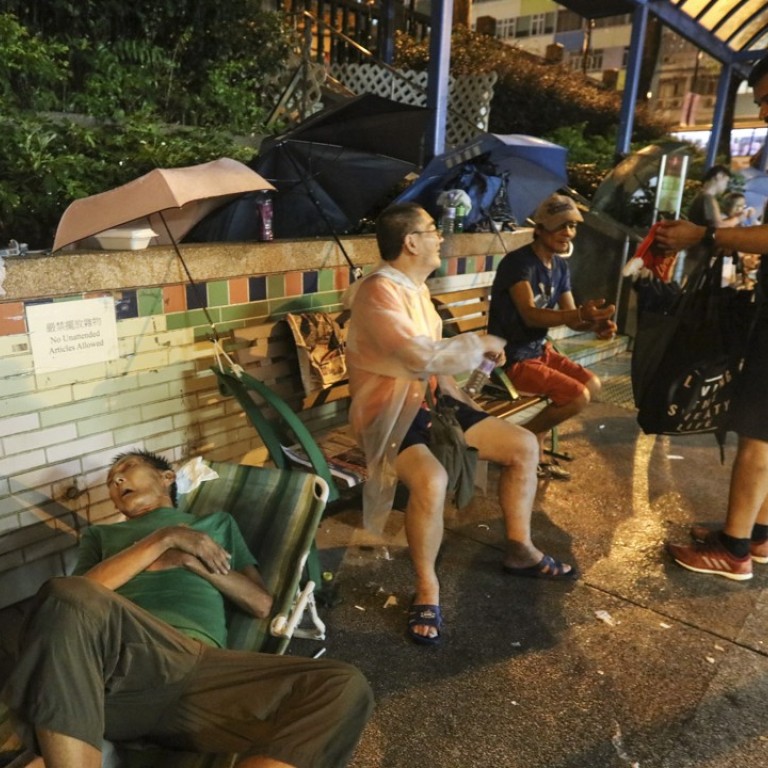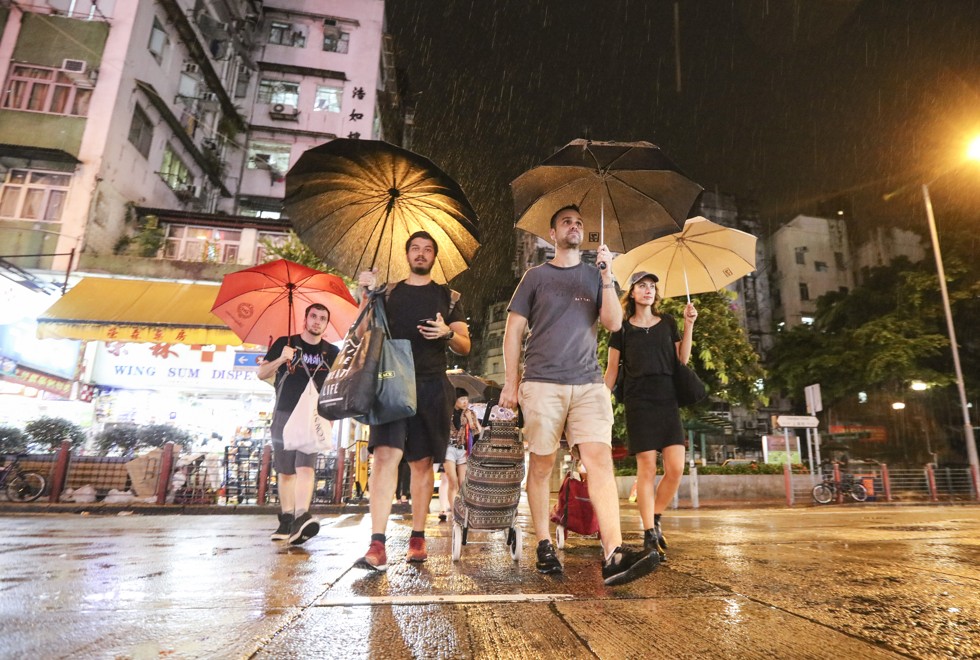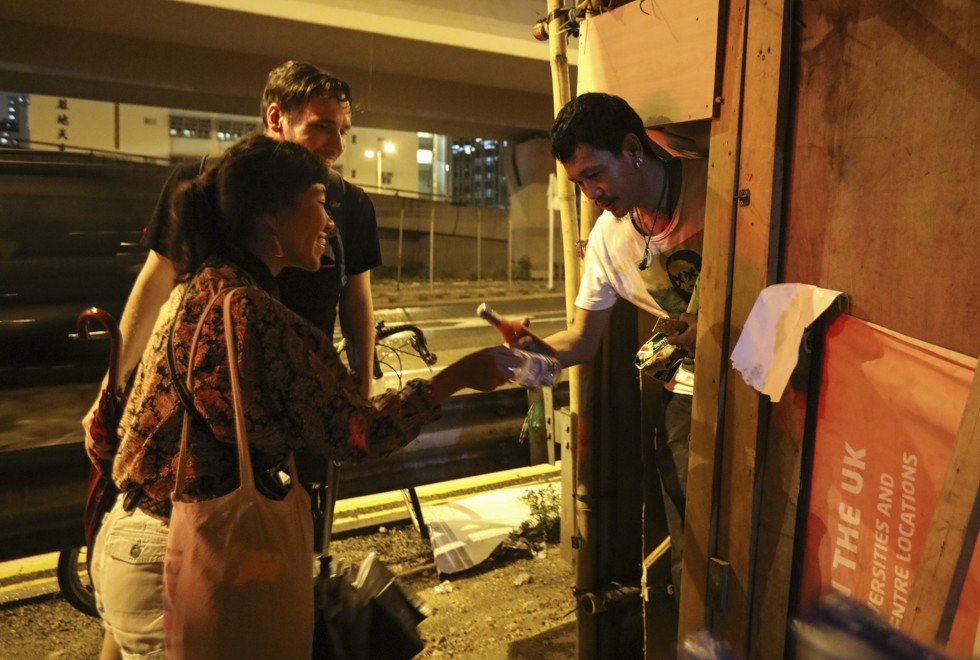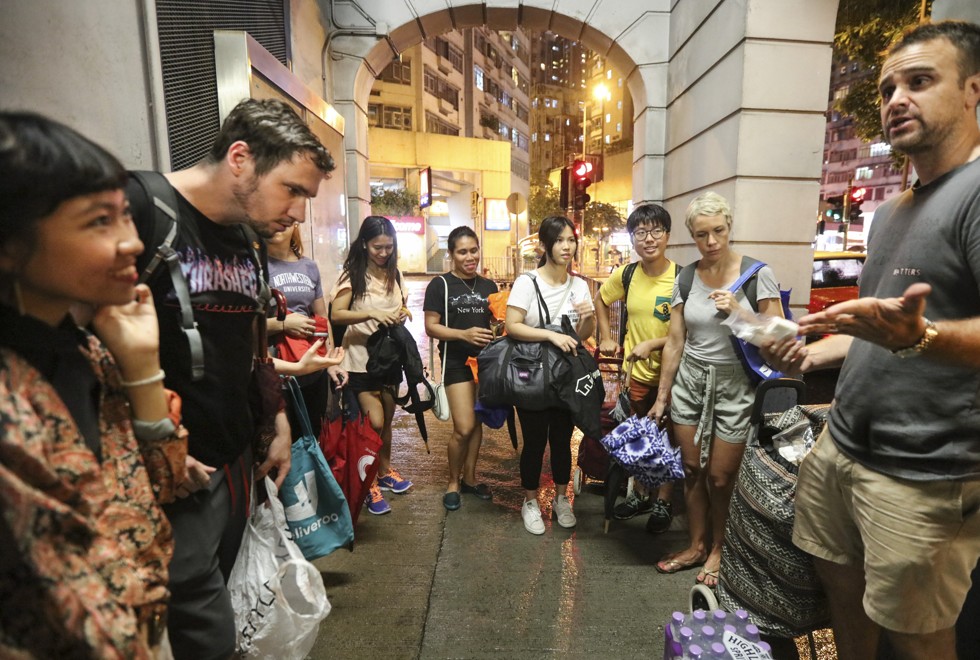
Hong Kong charity’s ‘kindness walks’ a step in right direction to help homeless
ImpactHK founder and volunteers visit areas where rough sleepers live to hand out food, while working on other ways to aid such communities
Jeff Rotmeyer is on a mission to change the lives of Hong Kong’s homeless.
The 40-year-old English teacher at a local school, who lives with his wife and seven-year-old daughter in North Point, first witnessed the extent of the number of the city’s rough sleepers in Sham Shui Po more than two years ago, after living in the city for about a decade.
As he was guided by a friend through lines of makeshift shacks beneath an underpass, he recalls being “surprised” by the number of people who were forced to live on the streets, estimated to be about 1,600 by local welfare groups.
He said he found the situation particularly worrying given Hong Kong’s status as a developed region.
“I didn’t know anything about the homelessness situation when I first arrived in Hong Kong,” he said. “It was quite surprising. I do not see why there needs to be such a big homeless problem here. I found it very easy to help them; it was a very memorable and meaningful experience. I could see the need and I could see there was a real opportunity to help.”
Rotmeyer began organising regular visits to Hong Kong’s homeless communities, which he dubbed “kindness walks”. He subsequently launched ImpactHK, which he first registered as a not-for-profit organisation while he applied for charity status, which was eventually granted this summer.
ImpactHK now holds about 20 walks per month, with up to 25 volunteers from various countries attending each session.
Rotmeyer said most homeless people were very receptive to offers of support, although some would respectfully decline handouts.
“We have to be quite cautious when we approach them,” he said. “We do not want to overwhelm them with the number of volunteers we have.”
One volunteer, 30-year-old Dutch social worker Leonie Stawniak, said she thought the most beneficial aspect of the interaction was forming relationships with individual rough sleepers and hopefully finding ways to gradually help them out of poverty. “You can actually find out their stories and why they are on the streets,” she said.
Volunteers primarily give out meals, such as simple dishes of rice, meat and vegetables from local restaurants. The charity is also partnering with food and beverage companies, such as French food distribution company Plantin Kaviari, to distribute any unwanted food and drink products. Volunteers are, of course, always encouraged to bring their own food donations, or any other useful products.
Another volunteer, 26-year-old Hong Kong-born jewellery business owner Geet Goenka, said he was aware of the city’s homeless problem, but had previously felt he could usefully donate only money to rough sleepers. “On our walks we are actually going out there to donate real things,” he said. “I really like Jeff’s vision for change.”
ImpactHK has also more recently started offering laundry vouchers; it has recruited launderettes to join the scheme, which it reimburses for their services.
“We realised that despite the homeless receiving some donated clothes, they were often forced to throw them away after wearing them for a while, because they had nowhere to wash them,” he said. “This gives them some dignity back.”
Rotmeyer would eventually like to expand the charity’s services to offer work, such as contracted commercial decorating jobs, and free accommodation to some rough sleepers. He would also like incorporate some free sports sessions into the programme, as well as setting up an office where volunteers could provide free English classes.
Rotmeyer said he was inspired to expand the charity’s scope to help larger numbers of rough sleepers. “You start to see the homeless situation all over this region, particularly if you go out at 1am; you’ll see 80-year-old women sleeping in doorways,” he said.
Despite the often criticised, limited government support for low-income Hongkongers, Rotmeyer said he rarely feels downhearted about the plight of the homeless. “I am motivated to help,” he said. “We need to attack this problem.”




